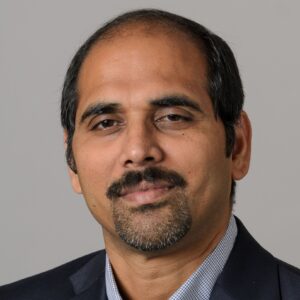 Professor Syam Nukavarapu will be assuming the role of the Biomedical Engineering department head, effective August 23, 2024. He is currently serving as an Interim Head of Biomedical Engineering. He is a Professor in Biomedical Engineering and holds joint appointments in the Department of Materials Science and Engineering, UConn, and the Department of Orthopedic Surgery, UConn Health.
Professor Syam Nukavarapu will be assuming the role of the Biomedical Engineering department head, effective August 23, 2024. He is currently serving as an Interim Head of Biomedical Engineering. He is a Professor in Biomedical Engineering and holds joint appointments in the Department of Materials Science and Engineering, UConn, and the Department of Orthopedic Surgery, UConn Health.
Professor Nukavarapu brings a wealth of experience and expertise to the BME Department Head position. Throughout his career, he has made significant contributions to the field of biomaterials science and engineering. His research interests span biomaterials, bioprinting, and tissue engineering with an emphasis of tissue-tissue interface engineering. He made seminal contributions to the development of engineered grafts and understanding biomaterial/graft interactions with cells and tissues. Professor Nukavarapu’s research has been funded by federal, state as well as private foundations. His contributions, including over ninety peer-reviewed articles and book chapters, numerous proceedings, and invited presentations, as well as three patents, have been invaluable to the advancement of the field.
Professor Nukavarapu currently serves on the editorial boards of major journals, including Biomaterials, Bioactive Materials, and Tissue Engineering. His active involvement in national/international professional societies, such as BMES, SFB, and MRS, reflects his dedication to scholarly pursuits and national leadership. He has received numerous research and education awards, including the Distinguished Engineering Educator Award, Castleman Professorship in Engineering Innovation, AAUP Teaching Excellence Award, and member-elect of the Connecticut Academy of Science and Engineering.